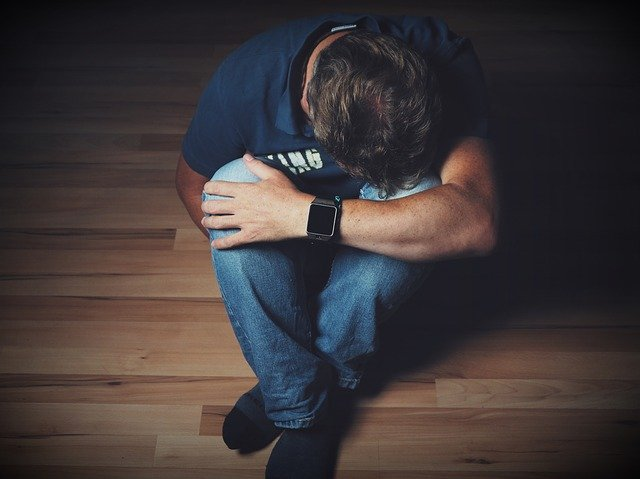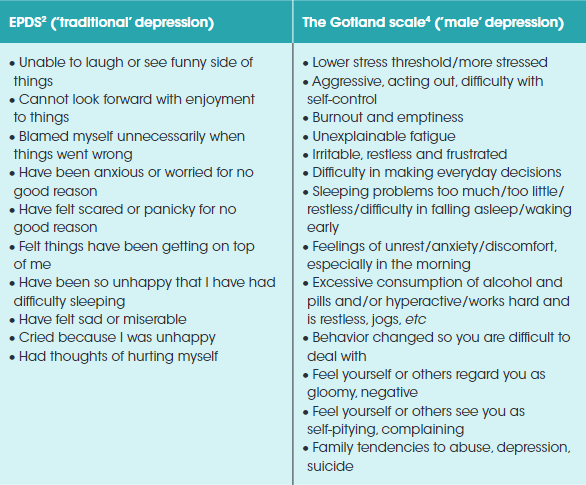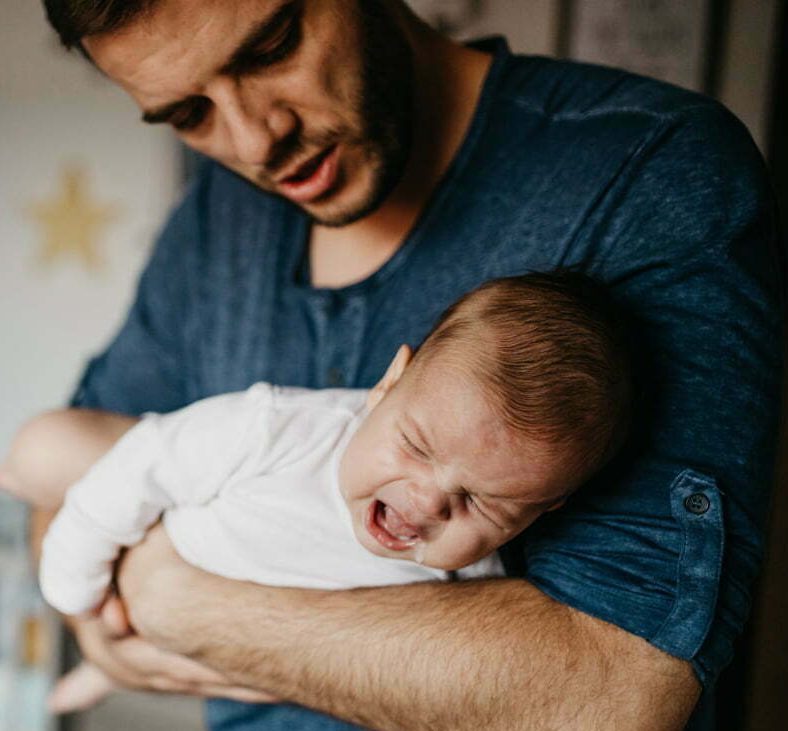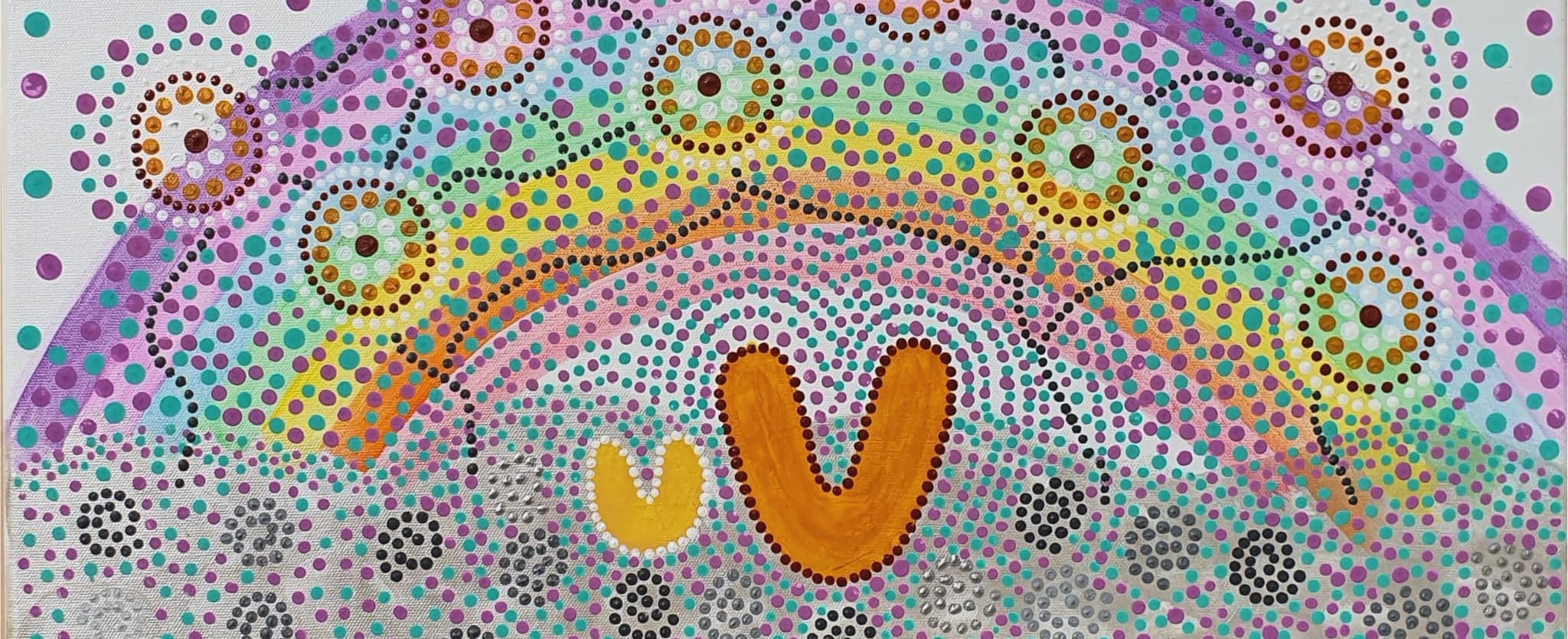Men’s mental health is an important issue that is often overlooked. Thanks to an increase in awareness and funding, we are beginning to talk more about male postnatal mental health in Australia.
Yes, postnatal depression in men is very real
You’re expecting a baby. You’ve become excited for future games of soccer in the park, the years of dad jokes ahead of you and the soon to be squeals of excitement from bath time splashing. Friends are posting on Facebook and Instagram photos of happy moments with their children, daily smiles and trouble free family outings. You begin to prepare for a seamless entry into the role of a fatherhood.
Many know that up to 1 in 5 women may experience depression or anxiety during the early stages of parenting however the risk for men also developing postpartum depression is common.
Also referred to as postnatal, perinatal or antenatal depression, these all refer to mental health conditions often arising from the fatigue and the psychological and hormonal adjustment during pregnancy or following the birth of a child. Many question “Can men get postnatal depression”? given it’s the woman who experiences the physical experience of childbirth. In fact, 1 in 10 men experience paternal depression in the postnatal period.
Postnatal depression in men often goes undiagnosed
For generations, the notion that men should show no emotions, fix all problems and ‘get on with it’ has been widely adopted. This needs to change. We need to create a community where “It’s OK, to not be OK”. Only with this acceptance, can we begin the reverse the expectation that men should suffer in silence.
We find that often it’s women who access perinatal support for themselves and their baby, therefore postnatal depression is diagnosed more commonly in women.
Communities often disregard a father’s mental health during early parenthood and are likely to have not heard of paternal perinatal depression. Many men may feel ashamed that they have symptoms of depression or anxiety at a time when they are expected to be excited. This can regularly lead to their withdrawal from family and friends and a deterioration in their mental health.

What causes paternal postpartum depression in men?
Despite men not experiencing pregnancy or physical birth, they too are going through a life changing event of transitioning to parenthood. No matter the circumstances, adjusting to parenthood can be stressful and emotional. When you include sleep deprivation in the mix, daily life can begin to feel overwhelming.
New fathers – getting into a new life routine
Many fathers often report having never held a newborn until their own has been born. The daily care of a baby and its practical tasks are foreign and require learning. The worry of ‘getting it right every time’ is at the forefront of parents’ minds. The worry of a baby’s cry and how to settle them can make any parent flustered, let alone waiting and wondering when their baby will next wake up, which can impact parental sleep and daily activities.
Family life is now very different and your routine prior to having your baby is likely to have significantly changed. Often fathers are required to return to work soon after the birth of their baby, therefore juggling multiple balls in their air of financially providing for the family, completing their work tasks, supporting their partner and being a new father.
Whilst learning the ropes of being a new parent, relationship stress after having a baby is completely normal. Misunderstandings and conflict often arise, when navigating your role as a father, adjusting to a change in lifestyle or managing financial stress. Try to find time to talk over your issues when you are both calm, even if you only have a few minutes free. Listen to each other and remain supportive of each other’s feelings and suggestions.
Hormonal changes
Despite not giving birth themselves, men also experience hormonal changes during their preparation and entry into fatherhood. Testosterone in men drops a few months prior to the birth of their baby and then increases again a few months after birth. This reduction in testosterone can be associated with depression in men. Men tend to be focusing on their partner and their hormone fluctuations and neglect changes in their own self.
Key Highlight
Male PND is often misunderstood & under-diagnosed, 1 in 10 men experience paternal depression in the postnatal period.
Risk factors for paternal depression and anxiety disorders
Some men have additional vulnerabilities that increase their chances of developing depression or anxiety in the perinatal period.
· Medical conditions such as history of depression or anxiety prior to becoming a new parent
· Has limited support practically and emotionally
· Experienced a traumatic birth or have a baby with additional health needs
· Has current or previous issues with drugs or alcohol
· Are experiencing financial stress
· Has a partner who is experiencing depression or anxiety
· Are unwilling to talk about their feelings and seek support
Educate yourself on the risk factors and symptom levels
If some of these risk factors are present, there are some steps you can take that may reduce your risk of developing or lessen the severity of perinatal depression or anxiety.
Educating yourself and others around you of the symptoms of perinatal depression and anxiety is important. This will assist in identifying early any signs that your mental health may be deteriorating and allow you to access support sooner.
Talking to a Doctor who can support you during and post birth of your baby or joining support networks such as SMS4Dads where consistent, reliable information will be available can be helpful.
Talk to your partner about paternal depression and develop a plan of how you will support each other if you develop the condition.

What are the symptoms of postnatal depression in men?
Depression symptoms in new fathers can vary and can often also be experienced at the same time as anxiety.
- Change in appetite by either eating more or less than usual
- Difficulty sleeping and restlessness
- Feeling tired and low motivation
- Lack of enjoyment in pleasurable activities
- Low mood, feeling sad, or crying for no good reason
- Thoughts of guilt or shame
- Isolating self from social situations, family, friends and support networks
- Feeling like a failure or feeling guilt
- Increased irritability or aggressiveness
- Trouble concentrating or making decisions
- Thoughts of self harm, death or suicide
Having an unsettled newborn may impact a dad’s mental health. Sleep deprivation and hearing a baby’s frequent cry can cause distress. You may begin to ponder “why doesn’t my baby like me”? or “what am I doing wrong”? Men have a natural tendency to want to ‘fix’ things and it is not uncommon to become overwhelmed when trying to feed or settle an upset baby.
Remember, it’s okay to place your baby safely in their cot or pram whilst you remove yourself from the situation and take a few deep breaths or seek some help from a family member, friend, GP or the ForWhen helpline.

What can sad dads do to take care of themselves?
Get prepared
When a new baby arrives, suddenly baby feeding, nappy changing and sleep times become the priority and a dad’s self-care and mental health take a back seat. Often the responsibilities of being a father, partner and household bread winner can become overwhelming and exhausting, learning ways to cope with the stress can make a big difference.
It’s okay to talk about it
Looking after your wellbeing may seem unachievable during the early stages of parenting however should be viewed as a necessity, not a luxury. Many think self-care has to be hours spent at a gym, however it can be as simple as talking to a mate. It’s okay to tell a mate that being a new dad is hard work because it’s likely he’s been there too! You’ll be surprised at how much you have in common now you are both parents.
Key Highlight
A lot of times, fathers have to go back to work too soon after the birth of their baby, which is something that can put them under a lot of pressure — both work-related and family related. It’s normal for relationships to suffer as both parents adjust to life with a newborn.
If you find yourself experiencing symptoms for more than two weeks reach out to your GP, ForWhen or recommended support listed below.
Look after yourself
Be conscious of your own personal health by way of nutrition and exercise. If sitting down for a regular meal becomes difficult, have healthy options available. This may include having some cut up carrot sticks or nuts on the kitchen bench at the ready.
There are also many services that provide ready to heat meals which can be a great option for a nutritious, quick meal. Remember, hydration is important and it can be helpful to have a water bottle in the most frequented rooms of your home as a reminder to sip, sip, sip!
Seek support from your loved ones
Now is the time to assemble a village around you. This may include family, friends, coworkers, your local church or support groups. It’s often difficult to seek support and accept help however you don’t have to do this alone. Find good, reliable sources to access advice from and utilise these when required.
What we know is that dads play a significant role in their child’s development. The role of the father has shifted over the past few decades with fathers now taking on more of an active role than ever. One who practices self-care both physically and mentally will likely be prepared to manage the stressors that parenting can present, as well as the ability to enjoy the highs that being a parent can reward us with.

First time dads are the most high-risk group
Becoming a dad for the first time may come naturally or induce confusion and stress. Particularly when your partner is pregnant, working out your role can take some time. Some great ways to prepare becoming a dad for the first time could be to attend a prenatal class with your partner, learn some skills such as wrapping a baby and changing a nappy and talking to your baby in utero.
Once baby comes along, remember that it’s okay if you don’t know what you’re doing. Learning anything new takes time! Learning to co-parent is an adjustment as is establishing routines. During this time and during pregnancy, communication is key.
As previously discussed, men often have a “suffer in silence” approach and particularly for new dads, this mentality is not sustainable and can often lead to symptoms of perinatal depression or anxiety.
Key Highlight
Are you worried about not “manning up” enough for the child? Is being a father “foreign” to you? New dads need support, compassion, and guidance in their journey as a father. Recognising and talking about it is the first step.
Seeking treatment / PPD diagnosis
Thanks to an increase in awareness and funding in Australia, we are beginning to talk more about mental health. Treatment for perinatal depression may include one or a combination of the following:
· Adequate sleep, exercise and nutrition
· Social Support
· Talk therapy
· Medication
An Edinburgh Postnatal Depression Scale (EPDS) and Gotland Male Depression Scale (GMDS) may be applied by a health professional to assist determining what level of support may benefit a father. This tool is not intended to provide a diagnosis, neither scale alone is sufficient for depression screening in new fathers, however it can be used to assess possible depression in men and women.
With various online, telephone and face to face based services available, fathers can now access support and advice easier than ever before. Whether it’s 2am in the morning or a public holiday, support for fathers is always accessible.
Mental Health Treatment Plans are available through General Practitioners which, if eligible, will provide Medicare rebates for psychological appointments.
Fathers support resources & helpline
For additional support, your GP can be a great first step when discussing mental health. A GP can assess your symptoms and refer you accordingly for support.
Other support options include:
- ForWhen – 1300 24 23 22
- PANDA (Perinatal Anxiety & Depression Australia) — 1300 726 306
- COPE (Centre of Perinatal Excellence) – 1300 740 398
- Men’s Line – 1300 78 99 78
- SMS4Dads – Text messaging support service
- Beyond Blue – 1300 22 4636 or chat online
Frequently Asked Questions
See below our answers to some of the most commonly asked questions we receive about men’s postnatal depression.
As a first-time father, you may have a natural instinct for what to do or you may feel confused and stressed. If your partner is pregnant, it may take some time to figure out your role. Feeling isolated, anxious, stressed are all emotions that can emerge in the lead up and postnatal period post-birth. Some men may develop postpartum depression, and these symptoms can emerge up to a year after birth.
No two fathers are alike, and there is no one right way to become a father for the first time. However, there are some things that all new fathers can do to prepare for the big day. Attend a prenatal class with your partner. Learn some essential skills, such as wrapping a baby and changing a diaper. Talk to your baby in utero, studies have shown that babies can hear their parents’ voices from inside the womb, so take some time to bond with your child before he or she is born. Get plenty of rest and relaxation. Once your baby arrives, you’ll be operating on very little sleep, so make sure to get all the rest you can.
Dads don’t have to be perfect. But they can take care of themselves by taking care of their mental health, do some pre-preparation for the new baby and what life will be like, eat well, make time for self-care, and make sure to drink enough water. And of course, dads deserve lots of praise and encouragement, it ain’t easy!

